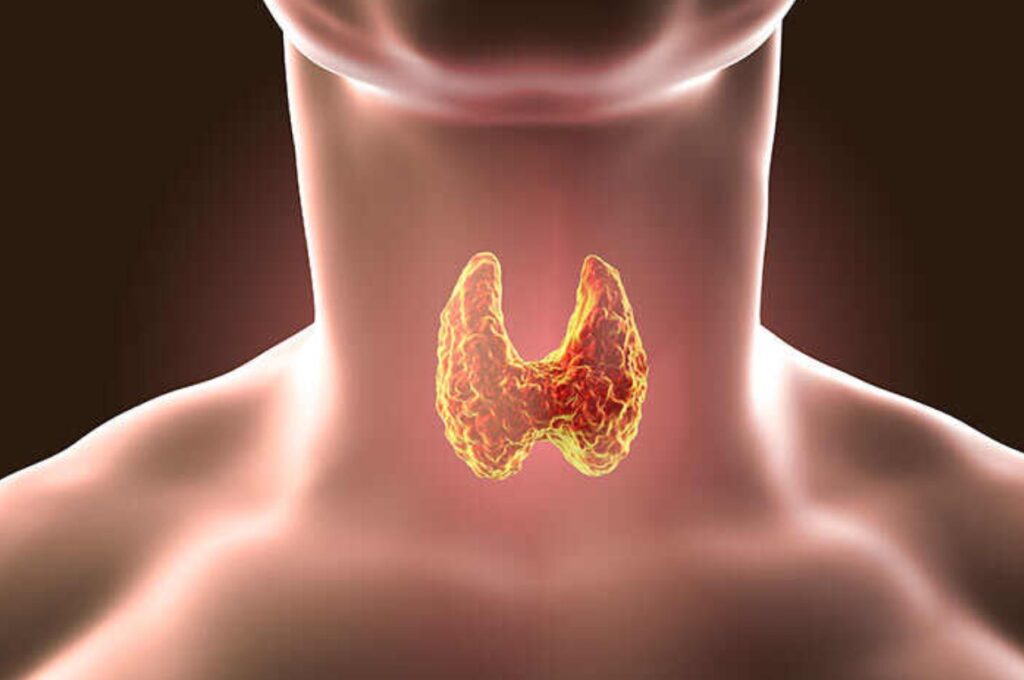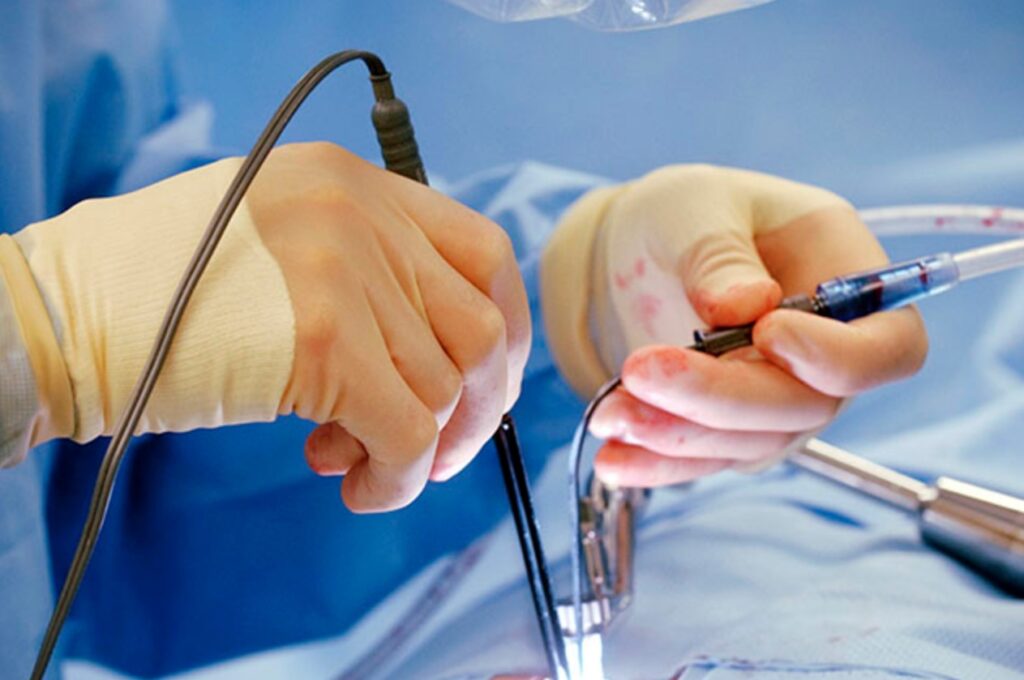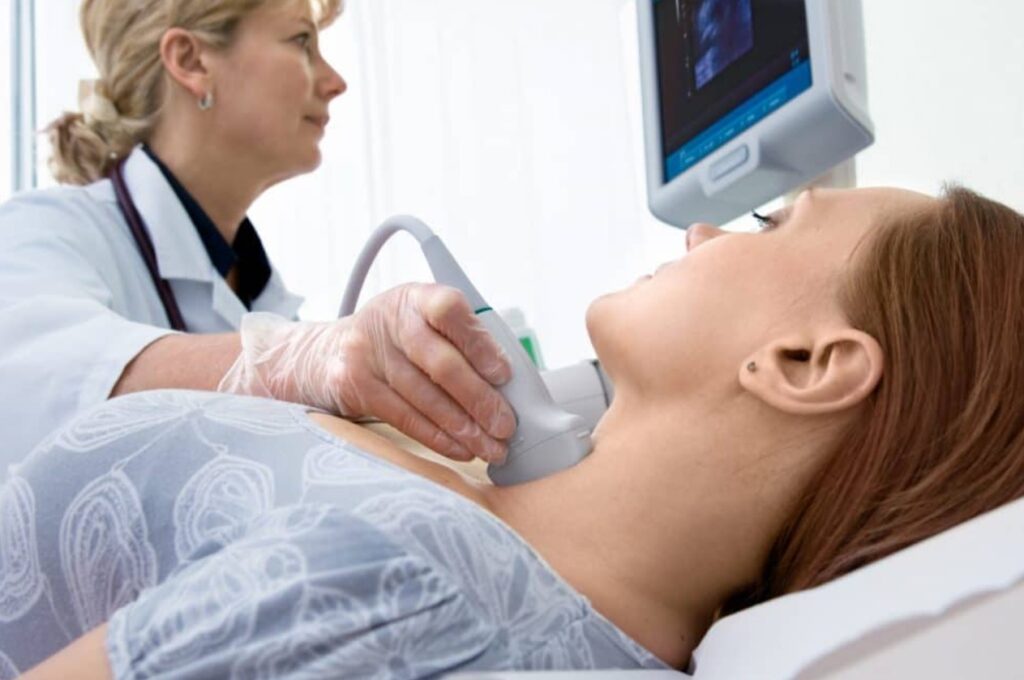Thyroid surgery is usually not very complicated, but you will need some time off to fully recover after the procedure. You may get back home with stitches due to the incision that the doctor made during the procedure.
Normally, the main reason why you would get thyroid surgery is to treat a condition that targets the thyroid gland, such as hyperthyroidism or goiter. Recovery after the procedure is relatively rapid. Even though you may experience some pain, the pain can always be managed through the use of some painkillers and other medication.
If you had partial thyroid surgery, you might be discharged on the same day, but if you had a total thyroid surgery where the whole thyroid is surgically removed, you might need to spend a night at the facility. The doctor will also let you know if a few more follow up visits may be necessary to remove the stitches. Thyroid surgery, when performed by an experienced surgeon, is usually a safe surgery without much risk of severe complications.
There may be some side effects related to partial or full removal of your thyroid during thyroid surgery. Some of these side effects include possibly having a change in the tone of your voice, some difficulty when trying to swallow saliva or breathe through clear airways, changes in your calcium levels, or in more serious cases you may lose control of your vocal cords for a period of time. It is important to follow your doctor’s instructions and oral medication may be prescribed to you in order to regulate your hormones post surgery in order to avoid any further complications.

How long does it take to feel better after Thyroid Surgery?
Do note that your voice may also sound hoarse or weak, and you may also experience slight complications when chewing or swallowing food. You may also notice slight swelling or bruising around the incision area.
This, however, shouldn’t bother you since the effects will most probably resolve between 3 and 4 months. However, if the swelling is severe or comes with a lot of discomforts, you’ll need to immediately let your surgeon know as that could be a red flag for infection.
Unless the procedure caused permanent complications with speaking, chewing, or swallowing, the complications might take up to one year to resolve. Most people need just 1 to 2 weeks to feel better, so it may also take you between 7-14 days to feel better after your thyroid surgery.
What is the Fastest Way to Recover from Thyroid Surgery?
Your recovery from a thyroidectomy will largely depend on the type of surgery and its extent. Ideally, if you had a minimally invasive procedure, you will only need a shorter time to recover than another person who went through the traditional open surgery. To make your recovery swift, here are a few guidelines you may need to observe.

-
Taking Care of Your Incision
There are a few things you will need to do to keep the incision from infections. For instance, the doctor may recommend that you don’t swim or bathe for a few days—most probably between 1 and 2 days.
The doctor will give you practical guidelines on how to take care of the wound. Be sure to follow the instructions carefully.
If the doctor doesn’t recommend a follow-up visit to remove the drain, be sure to get clear guidelines from them on how you can remove it. It would help if you washed the area around the incision two times each day using clean water. Do not use alcohol or hydrogen peroxide as they can delay the healing of that wound.
-
Your Diet
As we mentioned earlier, you may experience slight difficulties chewing or swallowing food. If that’s the case, you can start with very soft foods for example, cold drinks and ice cream, etc.
After that, you may proceed to medium-soft foods like mashed potatoes, yogurt, or pudding. Ideally, you should avoid scratchy or stiff foods when you’re still healing.
You will also need to keep off acidic foods like oranges that may cause discomfort to the throat. You should not panic if your bowel movements get irregular after surgery.
You may need fiber supplements to manage that. You may also need to take a mild laxative if you don’t notice bowel movements after a few days, but you’ll need to check with your doctor before using the laxatives.

-
Activity and Exercises
Usually, patients who undergo thyroidectomy aren’t allowed to drive for around one week after the procedure. You’ll need to check with your surgeon for clear guidelines on when you can begin driving independently.
As a precautionary measure, you will also need to keep off strenuous exercises or lifting heavy objects for around 21 days or until your doctor clears you to engage in such activities. You will also need to keep off any activity that forces you to extend your neck backward. It is also advisable to walk every day to increase blood flow in your system and issues like constipation and pneumonia.
-
Medicare
Your doctor will prescribe multiple medications to limit discomfort and make your healing simple. For instance, they may prescribe calcium to manage complications that may arise due to reduced calcium levels in your system.
They may also prescribe antibiotics to manage possible infections. To recover faster after thyroid surgery, you will have to religiously follow the doctor’s guidelines on how to take the drugs.
For instance, you must not stop taking medications because you think that you feel much better. If the pain medications cause stomach discomfort, try taking them before your meals unless the doctor doesn’t recommend that. Alternatively, you may also ask the doctor to give you a different medicine.

To sum it all up
Most patients who undergo thyroid surgery have quicker recovery processes when they stick to the doctor’s guidelines. For more information check out https://www.thomashosurgery.com/thyroid-surgery/









